"Giant Leap" -- a Plan To Reduce Birth Rates By 81% in the Next 70 Years
The WEF and Earth4All want us to have fewer great-grandchildren
The “thought leaders” who generate ideas for the World Economic Forum and the United Nations propose measures to reduce the number of births in the next 70 years from 130 million to about 24 million per year. That is about a five-times reduction!
Their radical plans are public and very specific.
The organization “Earth4All”, an influential sustainability think tank originating from the Club of Rome, plans to save the planet with the scenario having a fitting name, “Giant Leap.”
Their plan, aiming to radically transform human existence and governance on the entire planet, is quite detailed. The most important outcome of their project would be a reduction of childbirths by 81% by the year 2100 compared to the current level.
The projections are detailed in their proposal. (pages 45-46). I collated two charts together so that you can compare them. They contrast “business as usual” (on the left) with the result of their “Giant Leap” plan being fully implemented (on the right).
The Giant Leap plan (right bottom corner) reduces childbirths from the current 130 million per year to about 24 million per year globally by the year 2100.
As Earth4All explains, they originated from the Club of Rome:
Earth for All can trace its origins to The Club of Rome commissioned report The Limits to Growth published 50 years ago. Back then scientists used early computer models to show that Earth’s finite resources would eventually buckle under the weight of material consumption. Food production would fall, followed by a precipitous fall in population. Many people were shocked by the conclusion that pushing beyond the limits of the planet could lead to collapse. Over the last 50 years the world has followed the report’s worst-case scenario and we are beginning to see deep fractures in the Earth system and within societies. With Earth for All we could have explored more collapse scenarios, but we believe our future will be built on economic optimism not despair.
The same person, Sandrine Dixson-Decleve, leads Earth4all and the Club of Rome:
Earth4All is not a fringe organization. It generated the ideas that guided the World Economic Forum and the United Nations. Compare, for example, Earth4All’s Giant Leap plan (on the left) with UN’s “Sustainable Development Goals” (on the right).
I must disappoint conspiracy theory aficionados: the main idea of the plan to reduce births does not mention vaccines, toxic chemicals, or 5G. (I have no access to non-public information)
The publicly announced plan boringly amounts to removing many existing reasons for having children. It also sounds like many very nice, progressive, feel-good ideas - that have far-reaching consequences!
The Earth4All Plan - The Turnarounds
A few specific points are worth mentioning.
Impoverished people and smallholder farmers tend to have children to help with the family farms or as a social safety net for older age. So, the plan proposes to eliminate poverty by initiating massive economic transfers from wealthy countries to impoverished countries:
Noting that women with free time tend to have children, Earth4All recommends empowering women, (with many beneficial effects,) which would make womenfolk busy with life goals other than having children.
Economic growth, with steady expansion of housing, roads, and resources, also favors having children who can easily start another household after they grow up. Instead of economic growth, Earth4All and the WEF advocate for “degrowth,” that is, reduction in the resources such as housing or food consumed:
After asking, “Is degrowth workable?” the WEF experts explain that degrowth makes perfect sense to them:
Degrowth supporters also have compelling arguments.
The Conversation quotes Sam Alexander, a degrowth advocate and research fellow at the Melbourne Sustainable Society Institute at the University of Melbourne in Australia. He says degrowth “doesn’t mean we are going to be living in caves with candles”. Instead, it might mean people in rich countries changing their diets, living in smaller houses and driving and travelling less.
The Earth4All plan has every chance of succeeding. How do we know?
It worked in mouse colonies!
Calhoun Mouse Experiment
A famous biologist, John Calhoun, conducted numerous “mouse utopia colony” experiments, where mice could live comfortably in a miniature socialist “mouse city” in perfect equality without experiencing hunger, cold, or other hazards of living in the wild.
Mice usually have a hard life. People exterminate them. They are exposed to cold, predators, diseases, and discomforts. Yet, under these predations, their population seems to be indestructible!
Dr. Calhoun asked: what happens if, instead of endangered living, mice are placed in an equivalent of a modern 15-minute city, with unlimited food, mouse housing, and absence of disease and predation?
The outcome might shock you!
It turned out that, at first, mice loved it.
Officially, the colony was called the Mortality-Inhibiting Environment for Mice. Unofficially, it was called mouse heaven.
Biologist John Calhoun built the colony at the National Institute of Mental Health in Maryland in 1968. It was a large pen—a 4½-foot cube—with everything a mouse could ever desire: plenty of food and water; a perfect climate; reams of paper to make cozy nests; and 256 separate apartments, accessible via mesh tubes bolted to the walls. Calhoun also screened the mice to eliminate disease. Free from predators and other worries, a mouse could theoretically live to an extraordinarily old age there, without a single worry.
The eight mice who started this colony lived worry-free until they multiplied to a staggering population of 2,200.
[Calhoun] introduced eight albino mice into the 4½-foot cube. Following an adjustment period, the first pups were born 3½ months later, and the population doubled every 55 days afterward. Eventually this torrid growth slowed, but the population continued to climb, peaking at 2,200 mice during the 19th month.
However, the unusual initial success soon turned into problems. Frustrated lonely alpha males, involuntarily celibate mice, and female mice isolating themselves proliferated. Social bonds suffered!
Eventually other deviant behavior emerged. Mice who had been raised improperly or kicked out of the nest early often failed to develop healthy social bonds, and therefore struggled in adulthood with social interactions. Maladjusted females began isolating themselves like hermits in empty apartments—unusual behavior among mice. Maladjusted males, meanwhile, took to grooming all day—preening and licking themselves hour after hour. Calhoun called them “the beautiful ones.” And yet, even while obsessing over their appearance, these males had zero interest in courting females, zero interest in sex.
The utopian mice had no access to abortions, but many females killed or refused to care for their pups:
Many stressed-out mothers booted their pups from the nest early, before the pups were ready. A few even attacked their own young amid the violence or abandoned them while fleeing to different apartments, leaving the pups to die of neglect.
In the end, the colony completely died off. There was no lack of food or water, and no disease emerged. The mice simply stopped reproducing. This outcome was not because of overcrowding: as the murine population declined, overcrowding no longer was an issue - but the reproductive rates did not rebound until the end of the colony. The utopian mouse city went extinct.
Will the Humanity Die Off?
Without any ability to predict the future, I am cautiously optimistic. Humans are not mice; the Earth is not a confined mouse utopia.
Indeed, it is possible that, given a choice to have a nice life without having children, many people will choose to remain childless. They have every right to decide!
In many countries, numerous women and men already choose not to have progeny, and birth rates have fallen way below replacement levels. Japan and South Korea are “leading” the way:
Will having children no longer be the social norm?
Will this lead to the dissolution of many human societies?
Lastly, do we need this many people on this planet? Is depopulation good for us?
Who knows!
Having children is often frustrating, messy, dirty, expensive, and time-consuming. I love to be a father. Being a parent defines me; my children are my pride and joy. Playing with them was very pleasant. At the same time, I see the “other side” and empathize with others who find parenting daunting.
Perhaps, in the long run, humanity will self-select for a (possibly small) subpopulation that chooses to have children despite seemingly no good economic reasons to be parents. Parents of the future might even have to persevere despite being mocked and ridiculed by the childless majority!
After a few generations, perhaps, that small part of irrational, reproducing-at-all-costs people will be all that remains. What will drive them to have babies? Atavistic instincts? Religious beliefs? Worry about the continuity of the human race?
Will those people inherit a beautiful green planet? Only time will tell; I will not live long enough to know.
What do you think? Will Earth4All plan to reduce births by 81% work? Is it a good idea?

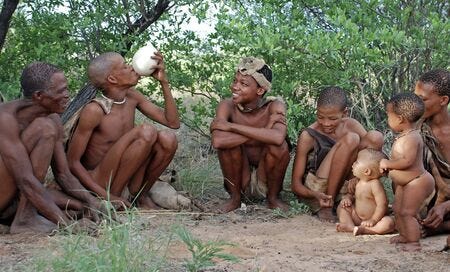


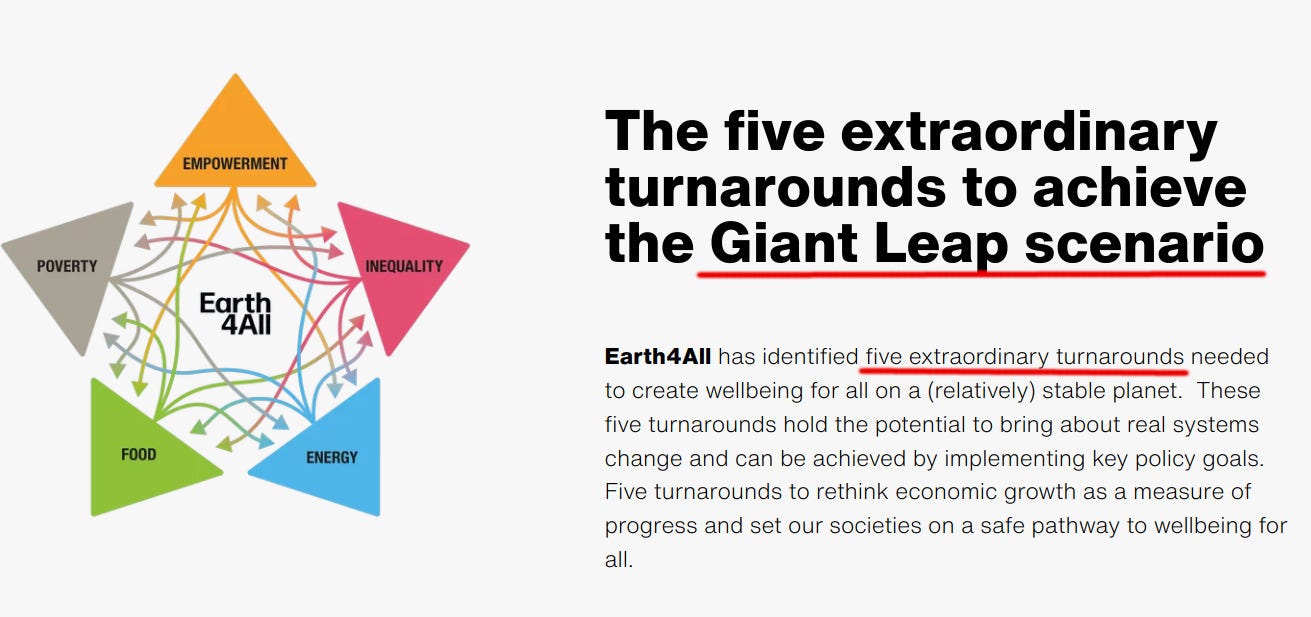
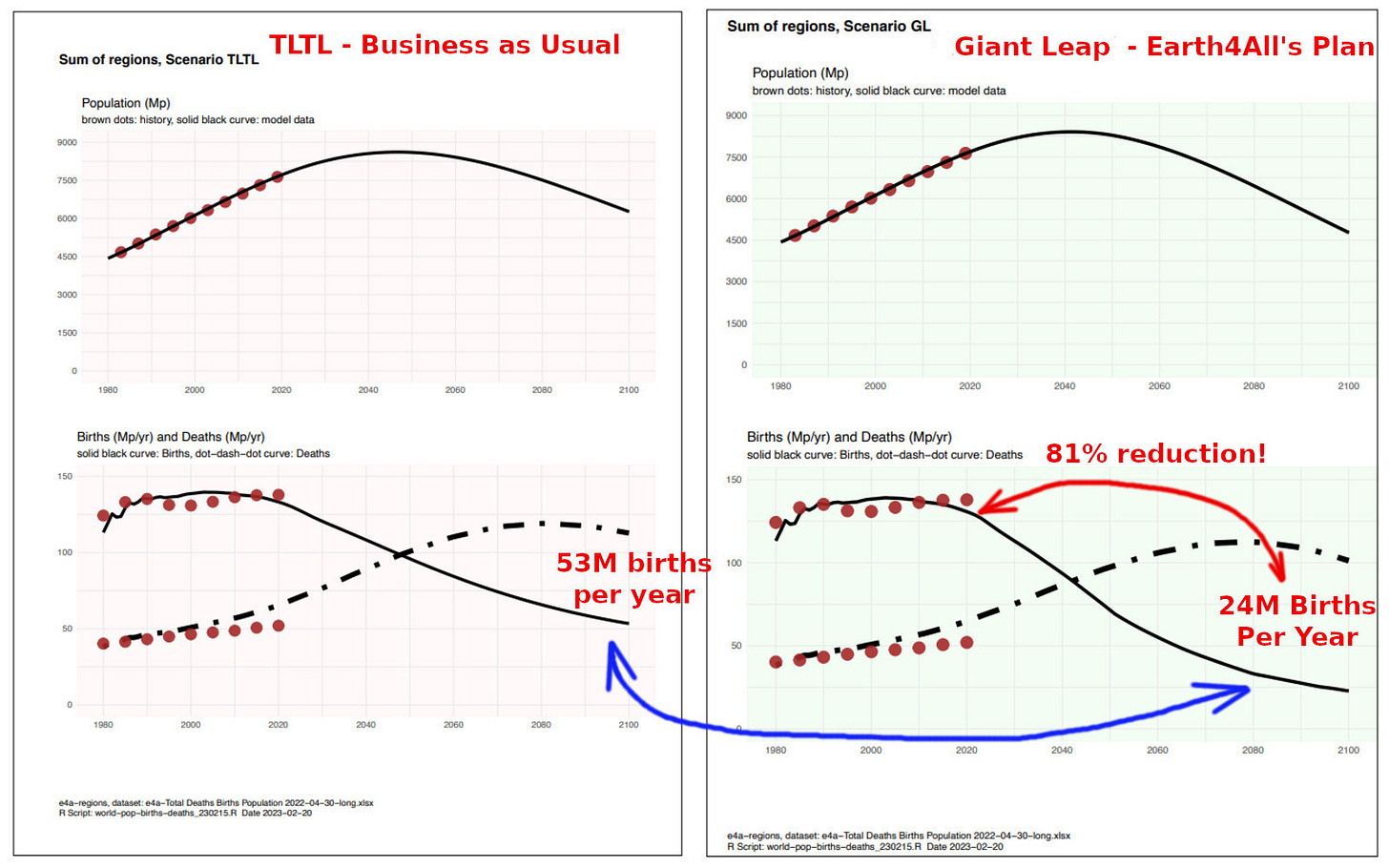
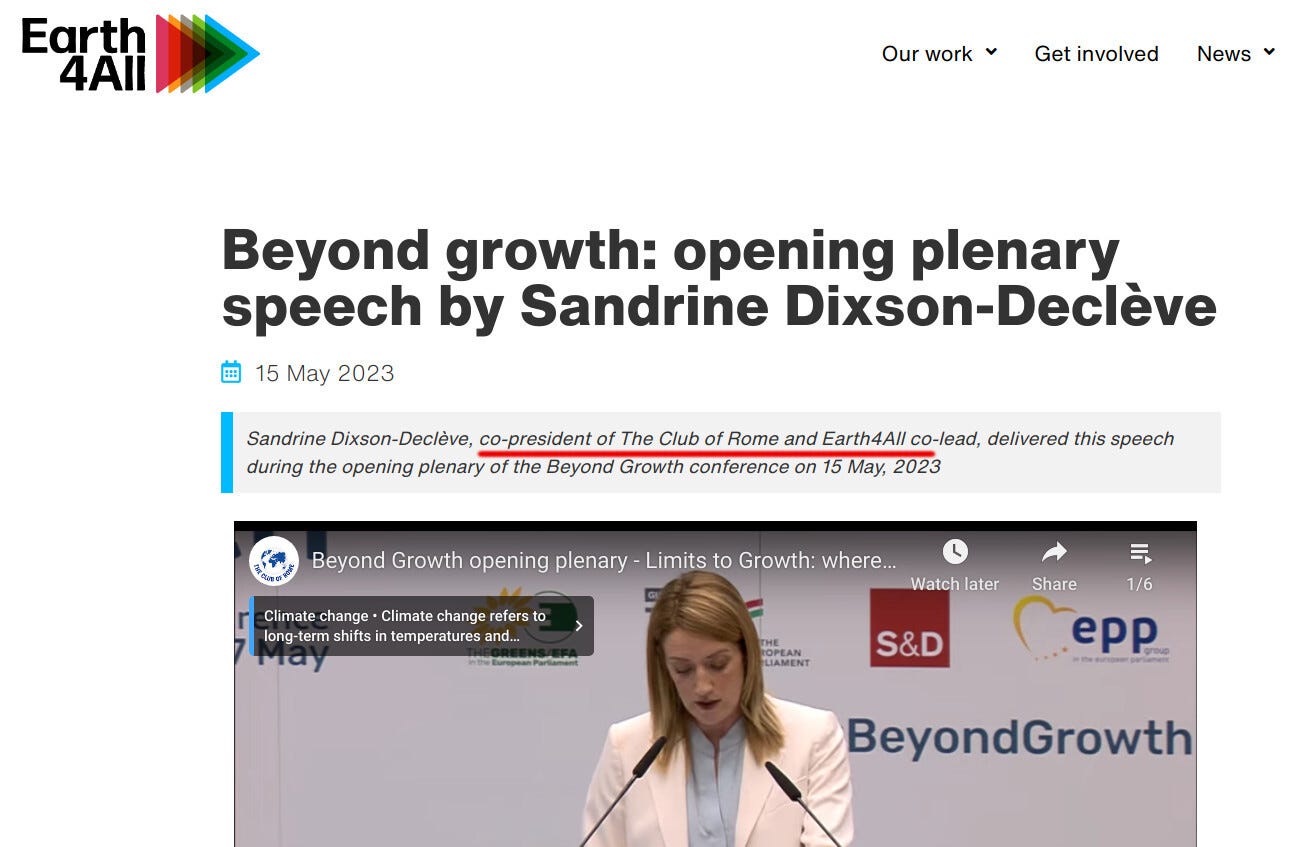

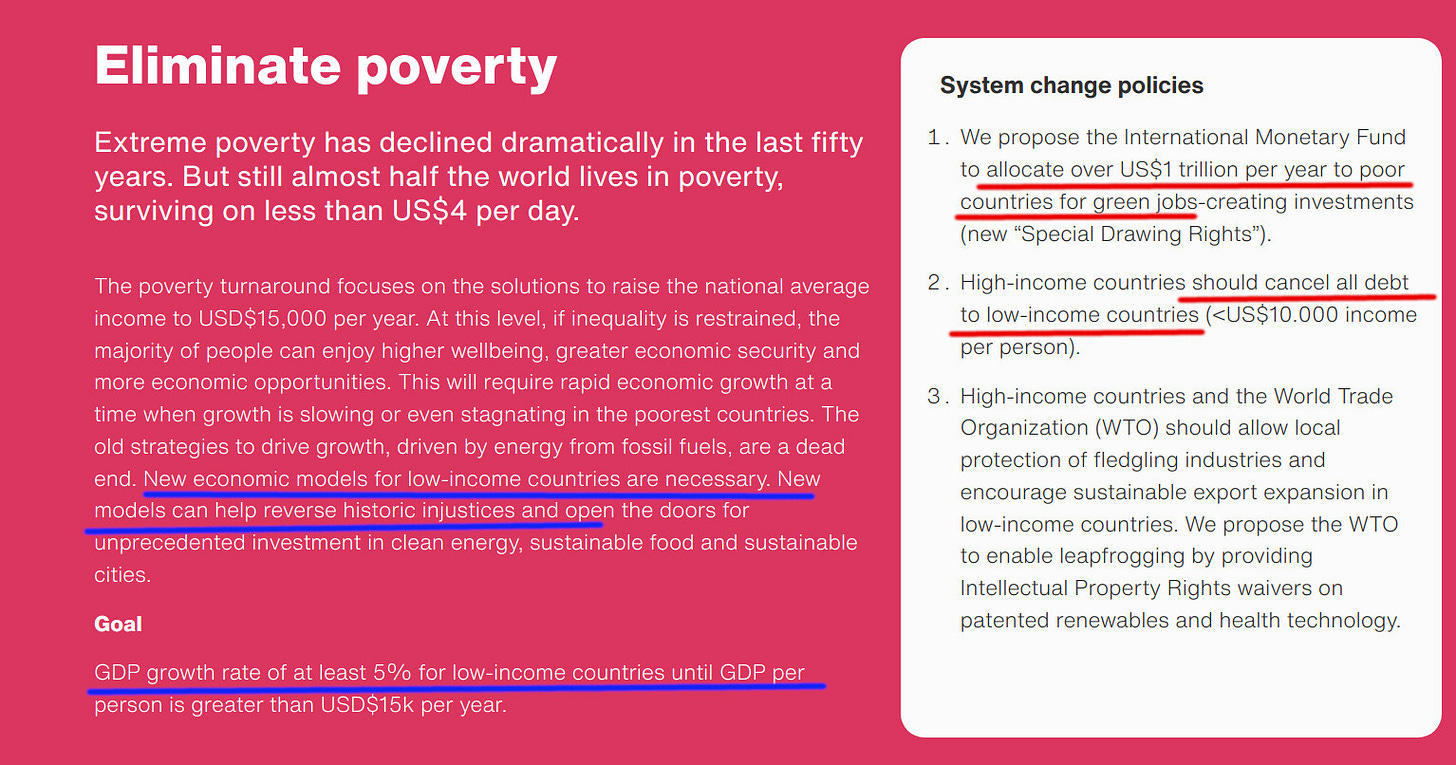
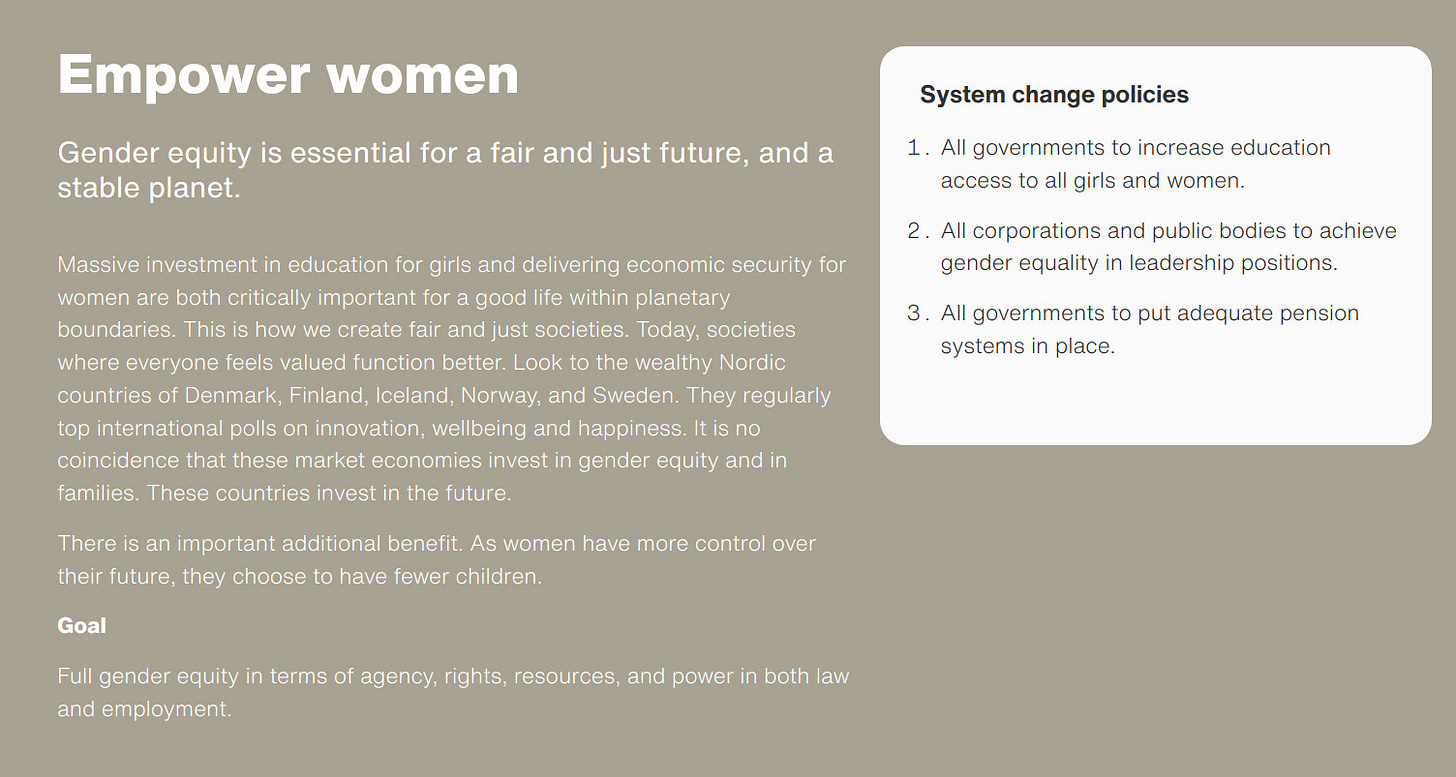
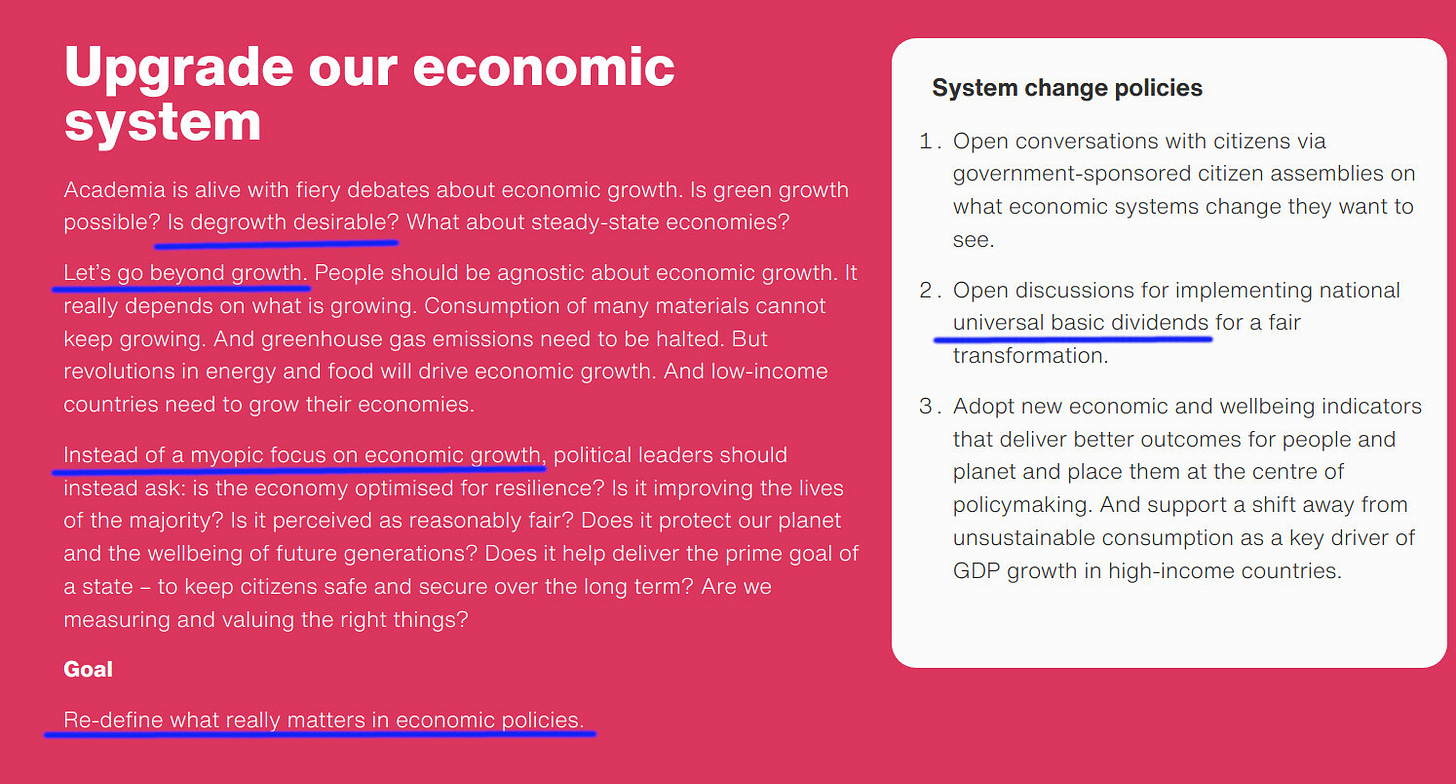
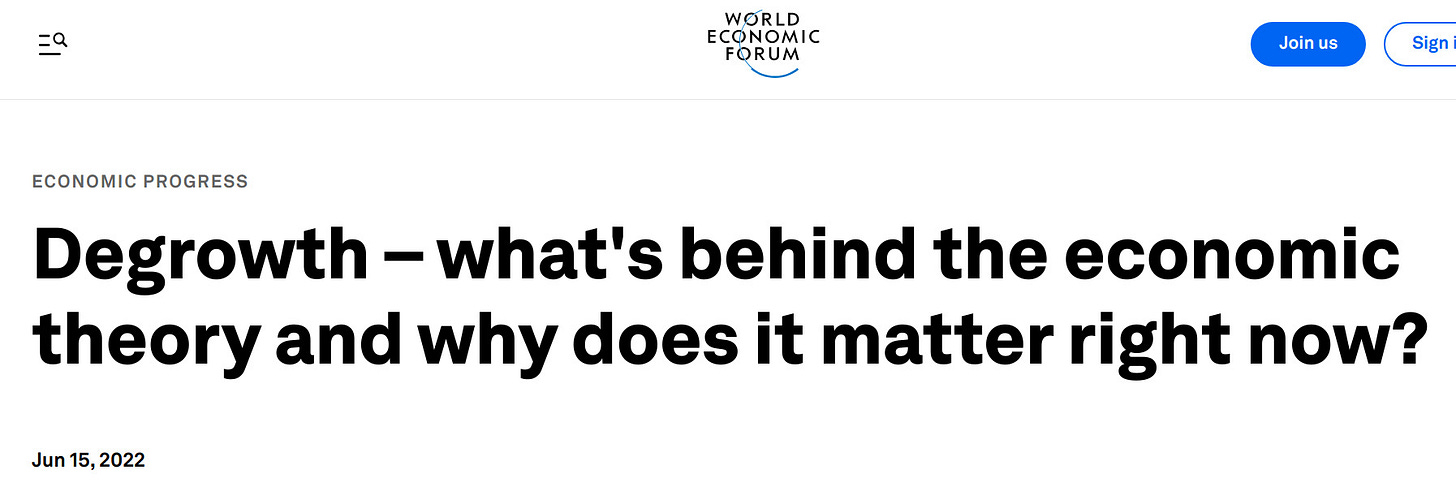
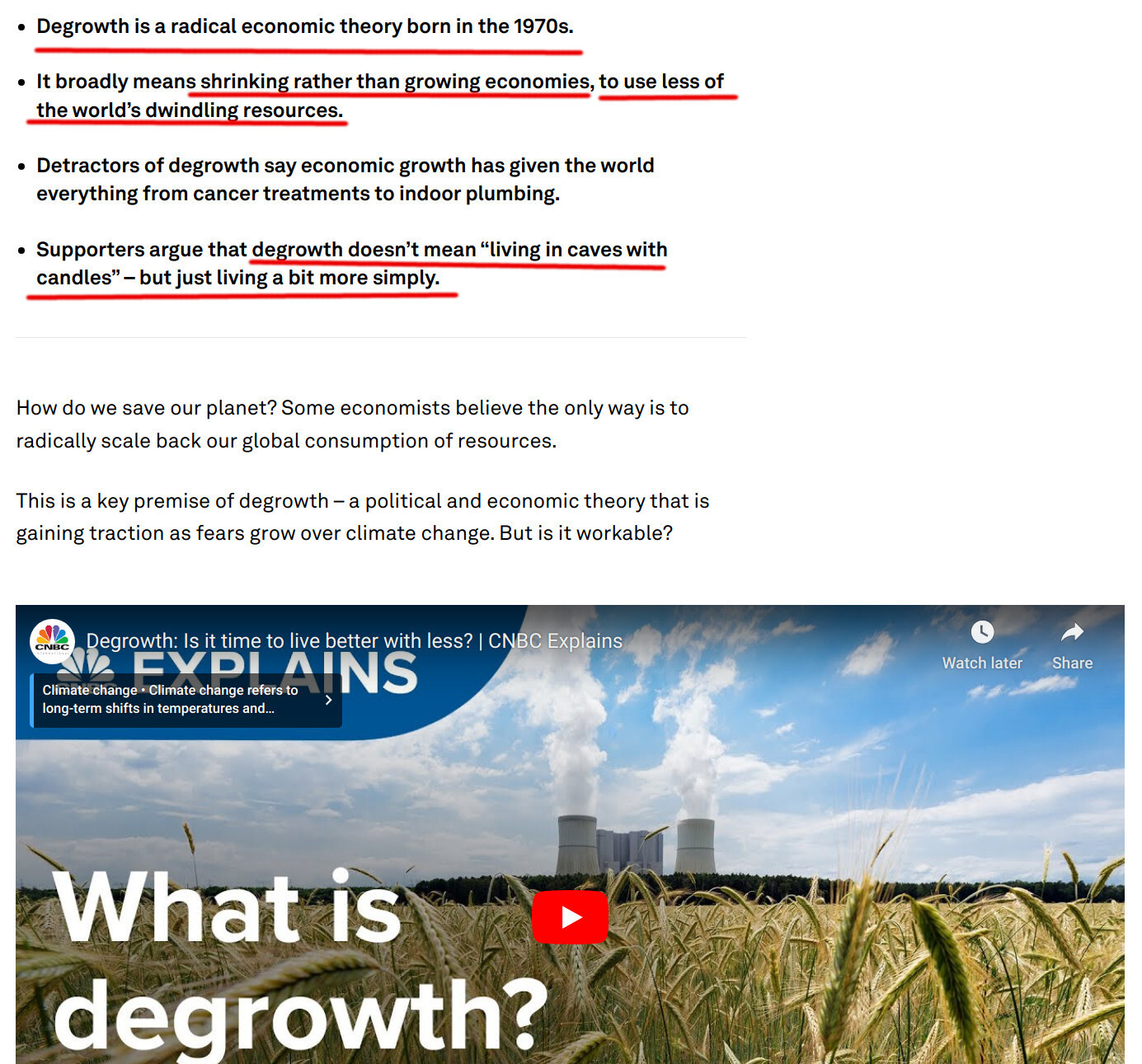
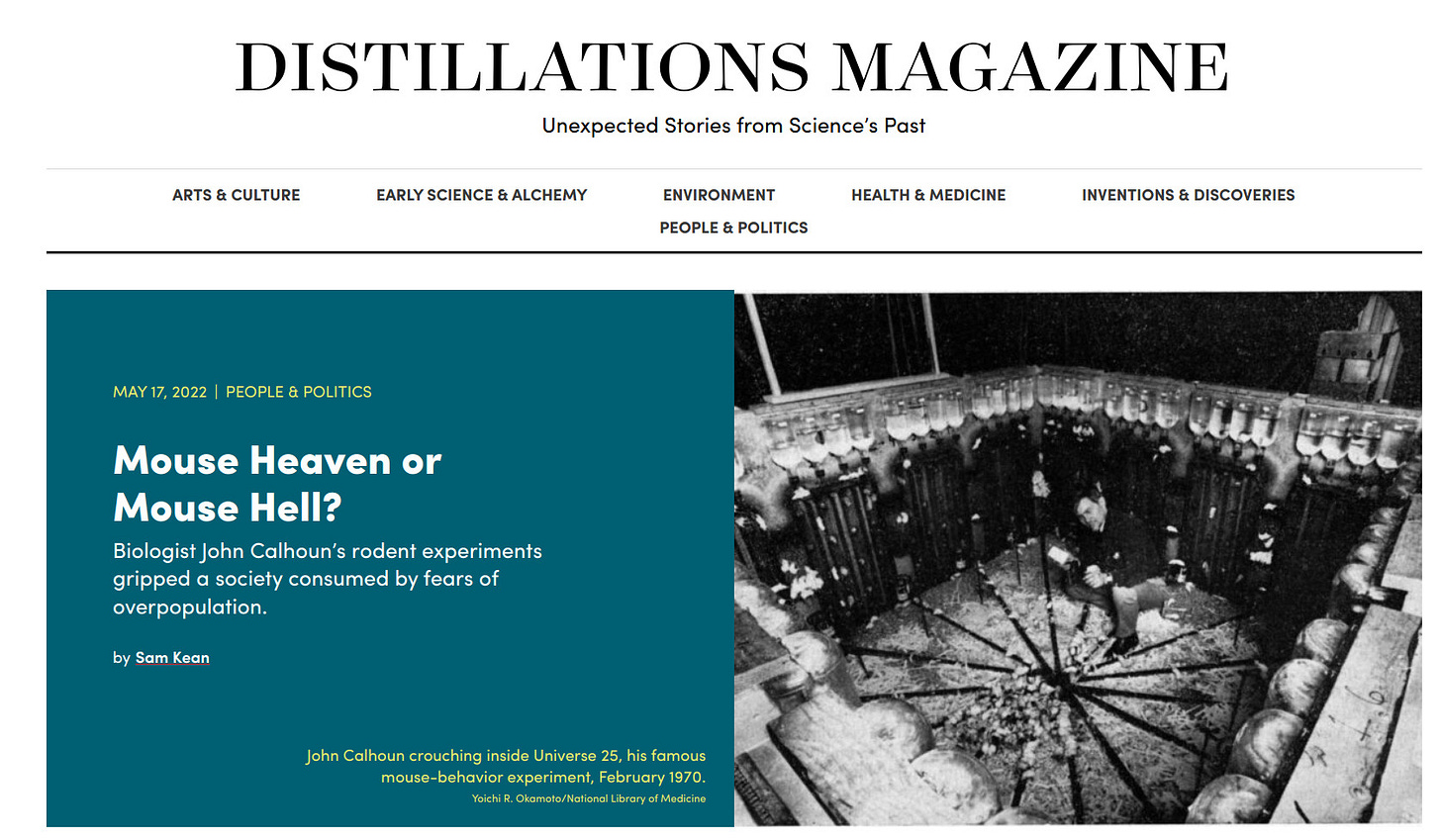
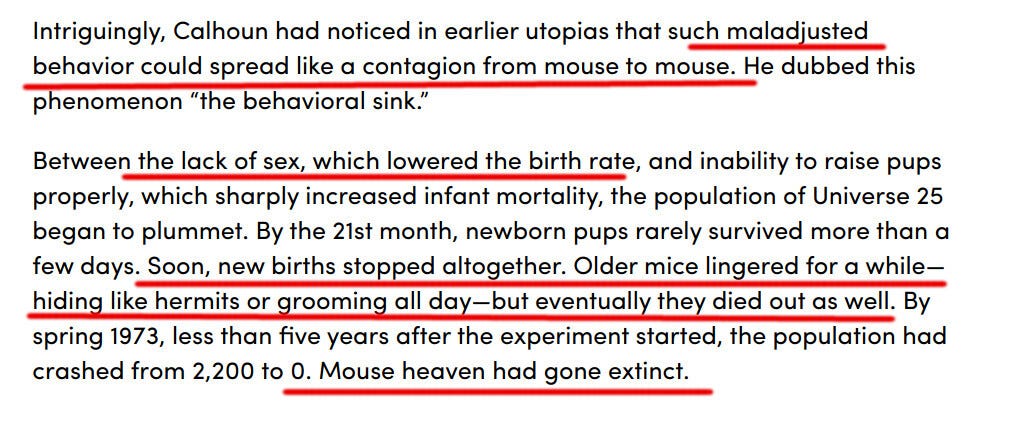
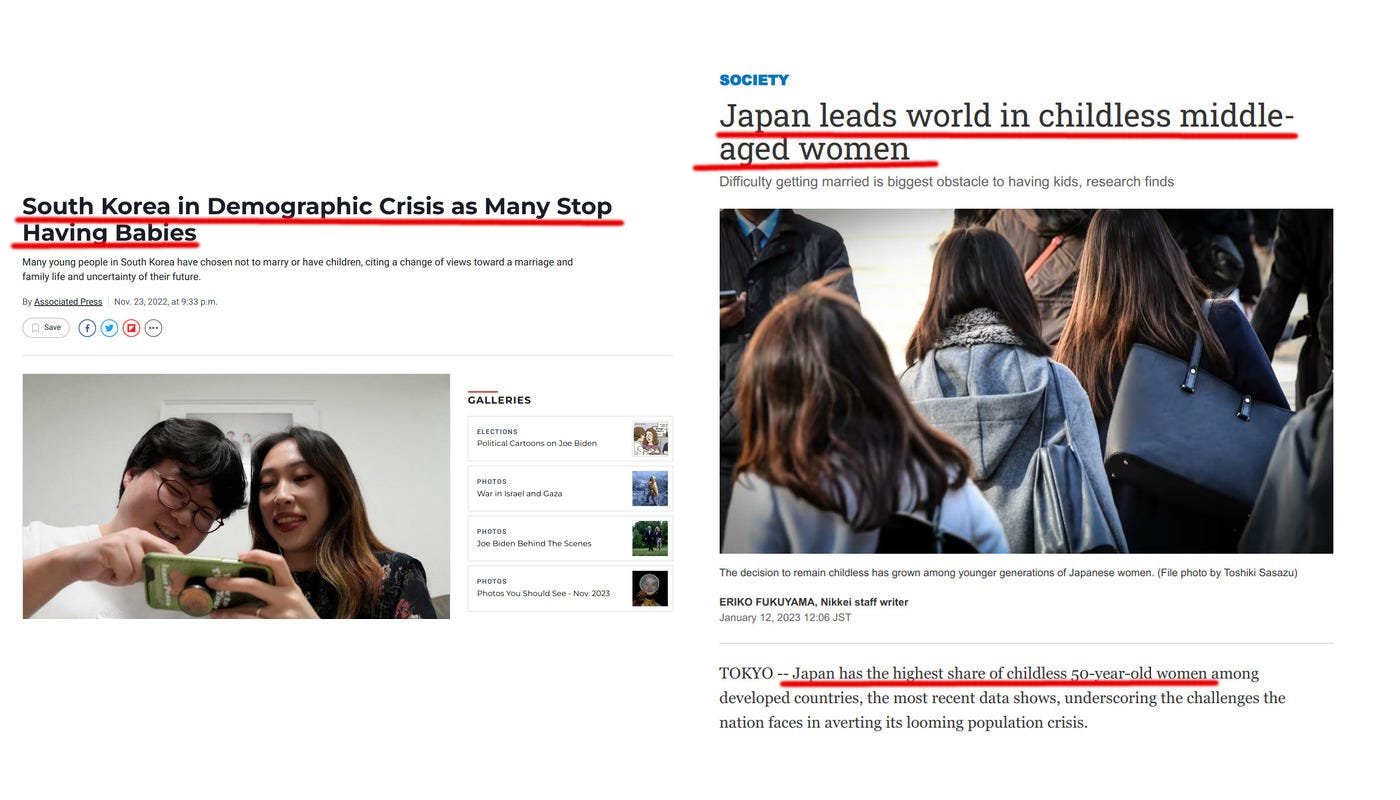
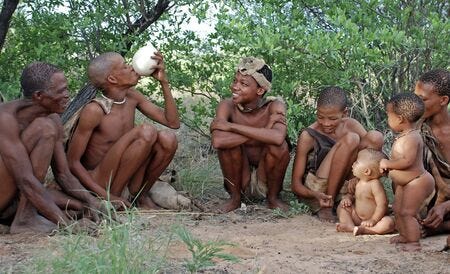
They didn't even try to hide the reference to the Great Leap Forward. At this point, they're rubbing our noses in it and calling us conspiracy theorists for smelling their bullshit.
I think the clear and present danger of the mrna based covid poisons to human ovaries made the intent of the mandates and lies very clear.